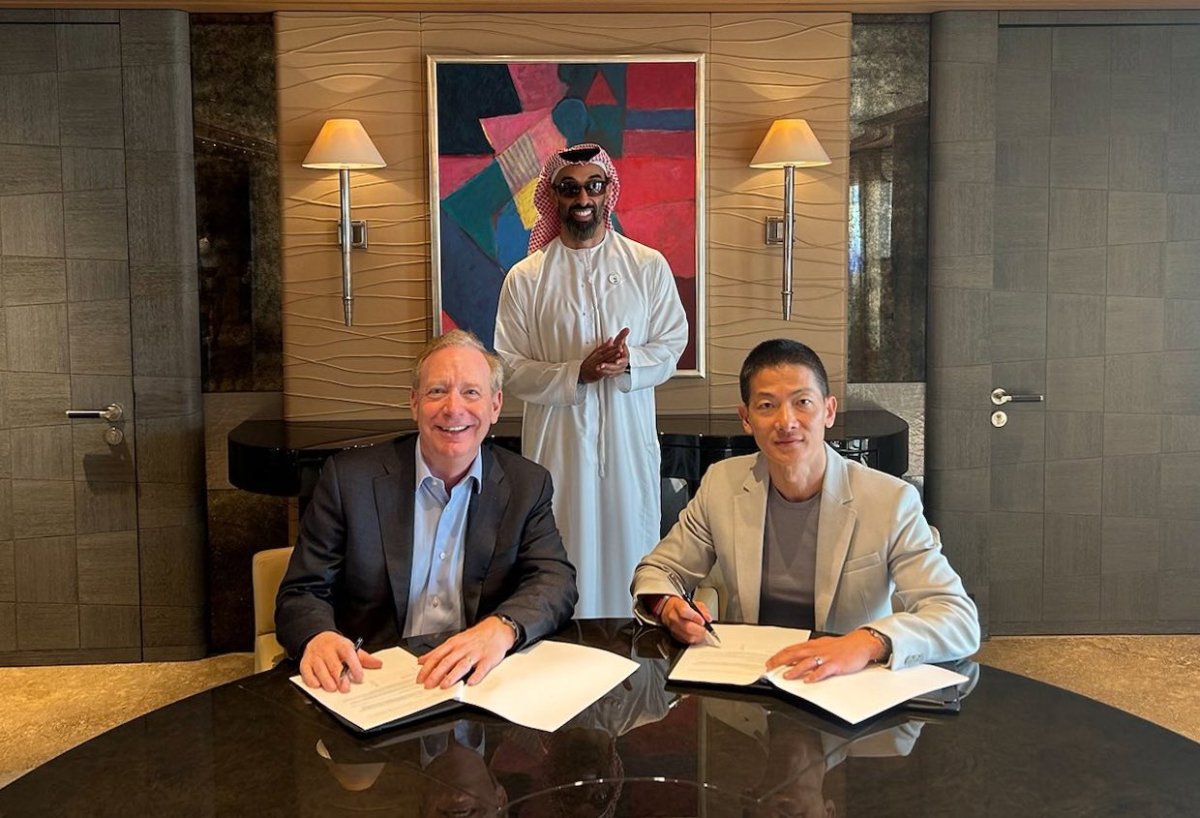The Gulf region is becoming increasingly important for the technological competition between the U.S. and China, with Microsoft making a significant move into one of the region’s wealthiest oil countries.
Microsoft announced a $1.5 billion strategic investment in G42, a prominent Abu Dhabi-based company driving the United Arab Emirates’ push to be a global leader in artificial intelligence. This minority stake will grant Brad Smith, Microsoft’s vice chair and president, a seat on G42’s board of directors.
This partnership signifies more than just a business collaboration between two AI powerhouses; it reflects the strategic alignments of the two countries amidst escalating geopolitical tensions.
At the core of the funding lies U.S. politicians’ concerns over G42’s connections with China. The bipartisan House Select Committee on the Chinese Communist Party has urged for G42 to be included on the Entity List, a move that would restrict the Emirati company’s access to sensitive U.S. technologies.
The deal between Microsoft and G42 now serves as a testament to which superpower G42 has chosen to align with.
Complex Interplay
As the UAE delicately maneuvers between the U.S. and China, G42, its flagship AI entity, has been inevitably drawn into the technological rivalry between the two global giants. Despite being a long-time ally of the U.S., the UAE has expanded its ties with China in recent years, triggering concerns within Washington.
The UAE’s increasing collaboration with China extends across economic, military, and technological domains. Chinese venture capitalists and firms are turning to the UAE as the U.S. market becomes less accessible due to geopolitical tensions. Companies like Nio are securing substantial investments from Abu Dhabi-backed funds as the UAE’s economy transitions towards electrification.
The evident ties between G42 and Chinese entities have raised red flags for U.S. politicians, with concerns over potential breaches of export controls and technology access. The U.S. House Select Committee on the CCP highlighted these worries in a letter to Commerce Secretary Gina Raimondo.
Polarized Partnerships
The unprecedented partnership between Microsoft and G42 has garnered support from both U.S. and UAE governments, reflecting a commitment to secure and responsible AI development. Microsoft is set to become G42’s official cloud partner, with Azure powering the Emirati company’s AI initiatives and data platform.
G42’s focus on reducing its Chinese affiliations aligns with its recent divestments from Chinese investments and hardware. This move signals a strategic shift towards Western partnerships, with Microsoft gaining extensive market access in return.
For tech companies like Microsoft, navigating the U.S.-China divide has become a complex challenge. The developments surrounding G42 underscore the inevitability of choosing sides in the ongoing tech war between the two superpowers.


